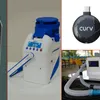
Qualcomm
View Brand PublisherFrom swappable ion batteries to asset trackers for the pharma industry, this is how Indian startups are ushering-in an age of smart infrastructure
Startups like Antariksh Waste Ventures, Adapt Ideations, Ubifly Technologies and Grinntech are developing innovative smart infrastructure-related solutions to address challenges related to urbanisation, environment and technology.
Digital infrastructure, coupled with intuitive software, is ushering in the age of smart infrastructure.
Smart infrastructure provides digital insights and real-time information about physical infrastructure. It also provides an in-depth understanding of not only how the devices operate and perform in real-time, but also how to use them more intelligently and efficiently, thereby enabling organisations, governments and businesses to leverage more from existing infrastructure or build new solutions.
Ushering this growth of smart infrastructure and smart cities in India are a number of emerging technology startups like Waste Ventures, Adapt Ideations, Ubifly Technologies and Motors and Services. The four startups are part of Qualcomm Design in India Challenge 2019 – a continuation of the initiative by Qualcomm that was started in 2016 to encourage design houses and product companies to invent useful and innovative hardware product designs.

Read on to see how the startups are working on smart infrastructure-related solutions that address challenges related to urbanisation, environment and technology and how Qualcomm has helped accelerate their efforts.
Antariksh Waste Ventures
Founding Team: Mahek Mahendra Shah, Founder/Director
Year of starting up: December 2017
According to 2016 industry figures, only 28 percent of waste generated in India was being recycled, even as waste generation was doubling every five years. Aiming to address this challenge is Chennai-based startup Antariskh Waste Ventures. The team is working on digitising the waste management eco‐system in India with AirBin™, an integrated bin system or an IoT box that can retrofit into an existing bin. It offers sanitation officers insights into daily fill status across city, pickups & clearance alerts to citizens & supervisors, waiting periods before pickups, waste segregation quality & related metrics, etc.
The team spent the initial two years researching on the design and prototype that can accommodate India’s infrastructural, cultural and geographical challenges. Qualcomm Design in India Challenge 2019 helped the team develop a scalable prototype of AirBin™. “Having never built a hardware product, we knew we needed to get a strong understanding of how to build a scalable hardware product. Also, in the initial prototype, optimising power consumption was proving to be a challenge. We knew the programme could help us address these challenges,” Mahek shares.
And, it did.
“When we started working with Qualcomm, our prototype was using a lot of generic components. By integrating Qualcomm’s MDM9206 based BG96 module, we were able to bring down our components count by half. In addition, after a detailed analysis and comparisons on the benefits in scaling and deployment of NB IoT over LoRa, the team decided to move to NB-IoT."
The product has a 4-month+ battery life on a single charge. The team is working towards achieving a 12 month+ battery life, so that it can be economically feasible for municipalities to make the switch to smart bins. The team is working to set up a paid pilot for AirBin™ from the Central or state governments
Grinntech Motors and Services
Founding Team: Puneet Jain, Co‐founder and Director
Nikhilesh Mishra, Co‐founder and Director
Year of starting up: 2013
With a bold vision to electrify private vehicles in India, Puneet Jain and Nikhilesh Mishra, two IITians, started Grinntech in 2013. However, they soon pivoted it to Grinntech Motors & Services – a bootstrapped lithium battery technology company to enable domestic mass production of lithium batteries after they realised that a majority of battery manufacturers were accounting for 85 percent of the Indian battery market share with more than USD 5 billion in market cap.
With a bold vision to electrify vehicles in India, Puneet Jain and Nikhilesh Mishra, two IITians, started Grinntech in 2013. However, they soon pivoted to focus on the development of lithium-ion based intelligent energy storage systems.
At Grinntech all aspects of battery development are done in-house - thermal designs, robust mechanical designs, battery management system, electrical safety systems and complete overall assembly of the battery packs for stationary and automotive (fixed as well as swappable) applications. In-house technology enables domestic mass production of high quality, affordable, smart and connected lithium battery packs for various applications.
Grinntech’s modular battery technology provides battery packs with voltage ranges from 12 V to 1100V and energy capacity of 1 kWh to 100 kWh with various connectivity options like CAN, GPRS, BLE etc. with emphasis on safety requirements. Grinntech also provides technology-driven solutions for battery swapping.
“We knew that with Qualcomm’s support, we could work and build connected battery pack prototypes. This will enhance the ability to track the health and state of charge of the batteries, do remote diagnosis and configuration updates according to the usage/climatic conditions in which the battery is being used. Also, the collected data would give us deeper insights to build stronger future versions,” says Puneet.
He adds, “Qualcomm’s help in component selection and support in hardware design reviews went a long way in helping us achieve our goals.”
With electric vehicles on their way to becoming mainstream, Bharadwaaj RA, Vice President- Embedded systems, Grinntech Motors, believes that the opportunity for Grinntech’s swappable and connected battery is big. He says, “Most businesses which operate on swappable batteries will want to track the battery itself as an asset. This would mean that every battery used in the swappable application would have to be connected to the internet.”
Ubifly Technologies
Founding Team: Pranjal Mehta, Co‐founder and CEO
Prof Satyanarayanan Chakravarthy, Co‐founder and Director
Year of starting up: 2019
Ubifly started as a college project with a professor at IIT Madras and a few students on a crusade to build electric planes. Today, Ubifly is a 10-member strong team. A pioneer in urban aerial mobility, its first product, Ek Hanz, is a compact autonomous electric aerial vehicle that can take off from anywhere and deliver goods/carry payloads (2‐6 kg) over long distances (60‐100 km).
The vehicle is a hybrid of a fixed‐wing aircraft and a quadcopter drone. It is completely autonomous with features like dynamic obstacle avoidance and real‐time path planning. “It can completely transform the healthcare industry, enabling the supply of organs, blood, vaccine, and drugs to remote locations/ in traffic‐clogged cities The army can use our aerial vehicle as weapons and as a vehicle to transfer material including food, medicine, ammunition from base camps to front lines in unfriendly terrains like deserts and mountains. For common man, food delivery is a fascinating use case,” shares Pranjal.
The team saw Qualcomm Design in India Challenge as a gateway to accelerate their product development. “Some of the best tech products today are built on Qualcomm platforms. The access to funds, technology and mentorship was also attractive. So, applying for the programme was a no brainer,” says Pranjal.
While the access to Qualcomm’s latest chipsets and IoT technology saved them R&D effort and money, the workshops have helped fine-tine pitch deck and share their story better than before.
“Access to funds, good technology, and an equity-free startup programme is a dream for early-stage startups. Startups who have been part of the programme have gone to raise big funds, and that shows us the potential and possibilities of a programme like the Qualcomm Design in India Challenge.”
While drone delivery hasn’t yet been legalised in India, the startup believes it is likely to change in the next few months. The team is working closely with regulators to make delivery legal in the country and even scoping the international markets.
Adapt Ideations
Founding Team: Prashanth Dharawath, Co‐founder and CEO
Saikiran Thatikonda, Co‐founder and CIO
Anirban Gupta, Co‐founder and Director
Year of starting up: 2016
About one third of the current pharma and food products go waste because of excursions in temperature, humidity, or theft. Adapt Ideations is on a mission to solve this challenge through the innovative use of the Internet of Things and bring transparency in logistics and its assets. It currently has business operations across India & Australia and is serving customers like DHL & CHEP among many others. Adapt Ideations provides complete end-to-end support from designing and developing its own reliable hardware to user-centric web-based apps. One of its key offerings is Kelvin – a smart asset tracker that is designed exclusively for the food and bio-pharmaceutical industry.
The tracker is an easy plug-and-play solution that can be used alongside WMS and ERP systems. It not only shares real-time data with customers but also informs and alerts concerned people through an SMS to take quick actions whenever any temperature or shock violation happens.
Kelvin was at a PoC stage when they got selected for the Qualcomm Design in India Challenge.
“While we had a few pilots, the product was not ready for mass manufacturing. We wanted to leverage Qualcomm’s expertise in three areas - increase the battery life, bring down the cost of the product and also relook at the schematics.”
Adapt was able to work on all three areas during the programme period. By using one Qualcomm-based module, we have nearly halved the number of components that were earlier required and saw a reduction of upto 50 percent in our power consumption and 35 percent reduction on the BOM.” This, in turn, brought additional benefits of reduced pricing. The team is now in the process of filing patent for the product that was developed as part of the programme and has already deployed more than 2,000 Kelvin across India and Australia. “With the proven durability of these deployed devices, we are planning to scale to the US and Europe.”
Applications are now open for Qualcomm Design in India Challenge 2020.
If you are a hardware startup designing devices and products in the domains of Smart Infrastructure, Biometric Devices, Payment Terminals, Agricultural Technology, Medical Technology and Rural IoT, apply for Qualcomm Design in India Challenge 2020. 10 startups selected for the programme will get access to Qualcomm Innovation Lab, different kinds of evaluation kits and development boards, along with the tools to optimise camera, audio, display, accelerator programme services, and will be be awarded an initial cash prize INR 3.2 Lakh each and a chance to win anywhere between INR 35 Lakhs to INR 65 Lakhs at the finale of the challenge.








